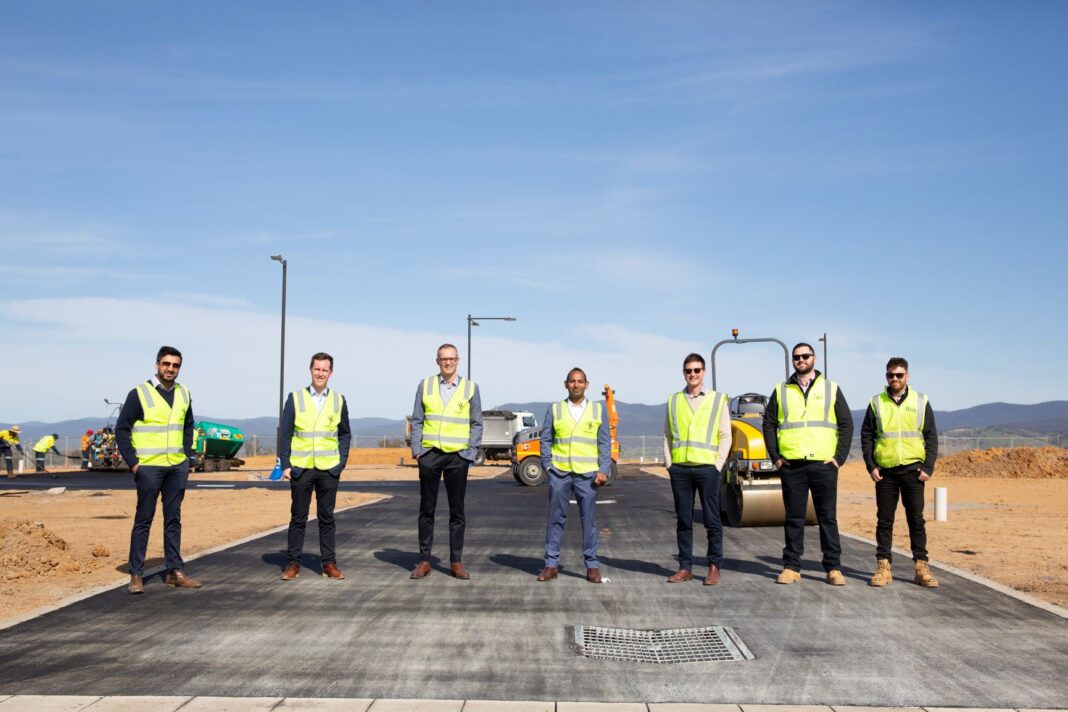Construction of Ginninderry Stage 2 has kicked off and the project is making waves in the eco-friendly sphere through a recycled road construction initiative.
As a sustainable asphalt alternative, recycled substance ‘Reconophalt’ is being used to build roads in the new stages of Strathnairn.
The recycled material will divert over 3 million plastic bags, 600,000 glass bottles and 75,000 printer cartridges from landfill.
Ginninderry senior development manager, Imran Khan, said the recycled asphalt initiative demonstrates the project’s continued commitment to sustainability.
“We are always striving to employ best practice and design influence. The heart of the project’s vision is to be a sustainable community of international significance in the capital region,” he said.
“It’s the first of its kind on a subdivision on the East Coast. It has been used on smaller road projects but it’s quite significant in the scheme of things and we continue to strive and set new benchmarks.”
ACT Roads and Active Travel Minister Chris Steel said the initiative showed the Territory’s commitment to finding new sustainable solutions.
“Canberrans can expect that we will be using a lot more recycled material in infrastructure to put the circular economy in action,” he said.
The Reconophalt is produced by Downer Group, an integrated services company in Australia and New Zealand.
Downer’s surfacing manager – NSW and ACT, Gana Varendran, said he was pleased to see the sustainable solution used in construction projects throughout the ACT.
“Reconophalt is cost effective and has enhanced properties of improved strength and resistance to deformation making the road asset last longer,” he said.
“Even after a road has been laid with Reconophalt, the pavement is perpetually recyclable, providing a truly circular and sustainable solution for communities and generations to come.”
The first streets built from the material in Strathnairn were completed and unveiled late last week.
Mr Khan said Canberrans would continue to see sustainable solutions used throughout the Territory.
“This is definitely something that will catch on,” he said.
“And watch this space for more sustainable solutions.”



